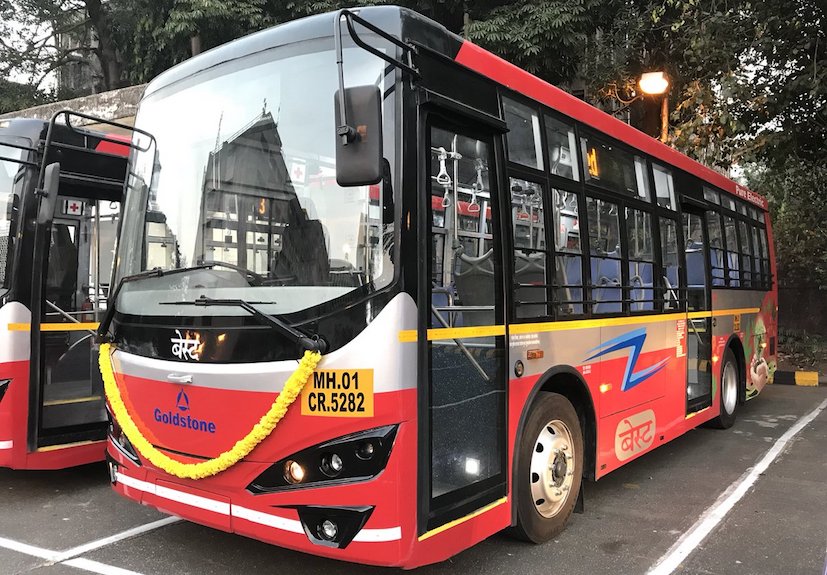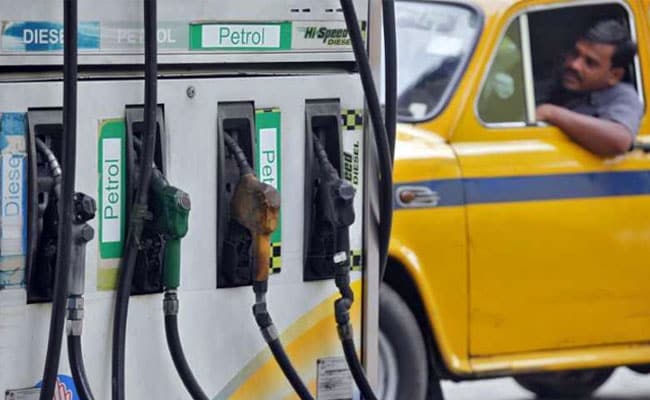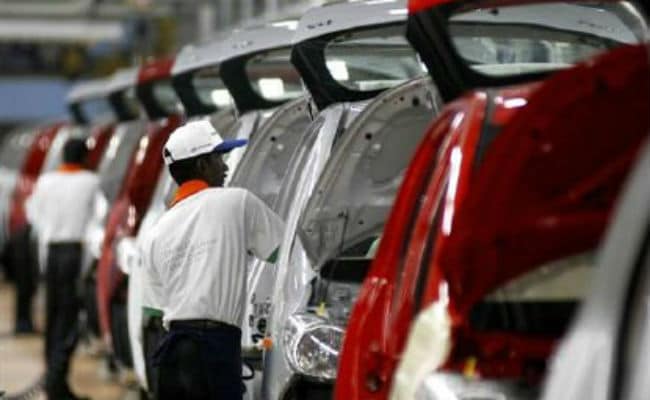Big Auto News Headlines Of 2019

Highlights
- Maruti Suzuki announced plan to phase out small diesel engine
- Government has no plan to phase out petrol diesel engines
- Bajaj Chetak to come back as an electric vehicle
The Indian automotive industry is going through some major changes, right from getting ready for the upcoming Bharat Stage VI (BS6) emission norms to bracing one of the biggest slowdowns the auto sector has seen in the last two decades. In fact, 2019 was truly an important and eventful one for the auto sector, be it the country's largest automaker deciding to phase out diesel engines, or the return of India's most popular scooter as an electric vehicle, we saw some major changes. So, as we near 2020, we look back and list down 9 biggest breaking news from the auto sector this year.
Allocation Of Rs. 10,000 Crore For Electric Vehicles Under FAME II (March 2019)
2019 saw the return of the second instalment of the Faster Adaptation and Manufacturing of Electric Vehicles, or simply FAME II scheme being cleared by the union cabinet. As part of FAME II, the government announced an allocation of Rs. 10,000 crore over a period of 3 years, to speed up the development of EVs and EV infrastructure in a bid to achieve the target of 100 per cent electrification of vehicles by 2030. The focus is on the electrification of public transport vehicles and other shared mobility solutions like - commercial three-wheeler and four-wheeler vehicles along with private two-wheelers. In fact, electric buses have been rolled out in several states across India.

(Government Eyes 100% Electric Public Transport Through FAME II)
Welcoming FAME II, Shailesh Chandra, President EV Business and Corporate Strategy, Tata Motors, had said, "It brings clarity and policy stability in the industry, thus creating an environment for all the ecosystem players to commit to the journey of sustainability. We see this as the key intervention in accelerating the penetration of electric vehicles and the realization of Government's Vision 2030." Pawan Goenka, MD & CEO, M&M said, "The revised FAME II removes all the uncertainty and will put Electric Vehicles in the fast lane. Mahindra supports the Central Government's focus to boost EVs in public transportation and now requests local authorities to help facilitate plying of electric vehicles on Indian roads."
Maruti Suzuki Discontinuing Diesel Engines (April 2019)
2019 biggest announcement from Maruti Suzuki India was its decision to phase out diesel engines from its line-up. The Indo-Japanese carmaker has said that it will stop the production of the 1.3-litre oil burners by the end of Financial Year 2019-20 but will decide the feasibility of converting its new 1.5-litre diesel engine to BS6 based on customer demand. Currently, the new engine powers the Ciaz, Ertiga, and XL6.

Maruti Suzuki will phase out its small 1.3-litre diesel engines, which currently power the Swift, Dzire, and Vitara Brezza among others
Stating the reason for ending production of small diesel engines, R. C. Bhargava, Chairman Maruti Suzuki India said, "The conversion cost of a BS4 to BS6 diesel car has a certain amount of money involved, which is quite significant. If you do that on a small diesel car, the percentage increase in the selling price of the car becomes significant. Now the viability of such a car also depends on the relative prices of petrol and diesel. If the gap between the two is large then customers will pay a higher price for a diesel vehicle, because overall it works out. But, if the gap between petrol and diesel is small, then it does not work unless you drive 5000 km a month which very few people do. So today the gap is very low, and with the price increase, which is involved in the conversion to BS6, and the petrol-diesel price, our assessment is it's not going to be a viable product, which customers will buy."
70 per cent of Maruti Suzuki's petrol fleet is already BS6 compliant, including models like Baleno, Swift, the new Wagon R 1.2, and even the new S-Presso hatchback, Ertiga petrol, and XL6 petrol.
MG Motor Enters the Indian Market With The Hector (June 2019)

MG Motor India has sold nearly 13,000 units of the Hector in India since its launch
This year we also saw the launch of the iconic Morris Garages a.k.a. the MG Motor brand in India, with the launch of the Hector, connected SUV. MG Motor India, a part of China's SIAC Motor Corp. took-over General Motors' Halol plant for its operations, and that is where the company manufactures the MG Hector. In fact, the carmaker has already retailed nearly to 13,000 units until November 2019. MG India is right now gearing up for the launch of its second car, which will be the all-electric MG ZS EV. The company has already started pre-bookings for the electric SUV, which is slated to be launched in January 2020.
Government has No Intention Of Banning Petrol Or Diesel Vehicles (July 2019)
Putting an end to the confusion around future of petrol and diesel vehicles in India, Nitin Gadkari, Minister for Road Transport and Highways announced this year that the government had no intention to ban petrol or diesel cars in the country. Speaking at the 59th Annual SIAM Convention this year in September, Gadkari had stated that that government was well aware of the contribution that India's automobile industry was making to the country's exports and employment.

The Government says it's aware of the contribution that the auto industry was making to the country's exports and employment
"The government is not proposing to ban petrol and diesel cars in the country. The Rs. 4.50 lakh crore automobile sector provides a lot of jobs and exports too have increased. But the government is facing some problem. First among which is the cost of import of crude oil. The second is pollution and the third is road safety," said Gadkari at the convention.
Kia Motors Enters India With The Seltos (August 2019)

The Kia Seltos will be manufactured for India and exported to a number of global markets from the Anantapur plant
2019 also marked the official entry of Kia Motors in India with the launch of the Seltos in August this year. With the new Seltos, Kia entered the highly competitive compact SUV space, to rival the likes of the MG Hector, Hyundai Creta, and Nissan Kicks. Kia India opened its manufacturing facility in Anantpur, Andhra Pradesh, which is also where the carmaker will produce its future products like the Kia Carnival and its new subcompact SUV. In fact, Kia said it will launch one new model in India in every six, for the next three year. In November the company announced delivering over 26,800 vehicles in India, and the same month the Seltos became the country's best-selling SUV with over 14,000 units. The Seltos is also a connected SUV, featuring the UVO connectivity system that offers about 37 smart features including geofencing, remote engine start with AC control, emergency assistance, navigation, tyre pressure monitoring system and more.
Passenger Vehicle Sales See Worst Ever Monthly Drop In Over 2 Decades (September 2019)
The slowdown in the auto industry had several impacts throughout the year, but it was in August 2019 that we saw its biggest effect on the auto sector. That is when the industry logged the worst ever decline in monthly passenger vehicle sales since Financial Year 1997-98. Passenger vehicle sales plunged 31.57 per cent year-on-year to 196,524 units in August, falling for the 10th straight month. This is the worst-ever fall for both the categories since SIAM started recording the data in 1997-98. Within PV sales, it was the passenger car sales that took the biggest hit with a declined a massive 41.09 per cent at 115,957 units.
Also Read: Auto Crisis: Passenger Vehicles See Worst Drop Since 1998

Passenger vehicle sales plunged 31.57 per cent year-on-year to 196,524 units in August, falling for the 10th straight month
In a statement, Rajan Wadhera, President, SIAM, said "The sales report coming out from various companies for the month of August 2019 has been very dismal with over 30 per cent erosion of sales for passenger vehicles. The commercial vehicle and two-wheeler sales are also significantly negative indicating that the market has still not responded to the various measures initiated by the Hon'ble Finance Minister last month."
Mahindra & Ford Joint Venture Announcement (October 2019)
This year home-grown automaker Mahindra and Mahindra and American carmaker Ford Motor Company announced creating a new joint venture brand for the Indian market. In this new venture, Mahindra will own the controlling stakes of 51 per cent, while Ford will own 49 per cent stakes. The companies will have 50-50 representation on the board, with a Mahindra elected Chairman. The new joint venture will be responsible for growing Ford's presence in India and exporting its products the company's entities globally. The brand will continue to remain in India, and the new JV is expected to become operational by mid-2020.
Also Read: Mahindra-Ford New Joint Venture: All You Need To Know

Ford and Mahindra will open a new joint venture brand for the Indian market
Mahindra and Ford will co-develop new products, and this includes three new UVs under the Ford brand starting with a new mid-size SUV that will have a common platform and powertrain shared by the companies. The new models are likely to include a C-segment SUV based on Mahindra's platform, a B-segment SUV based on Ford's platform, and a new MPV as well. Ford Motor Company will transfer its India operation to the joint venture, including its personnel and assembly plants in Chennai and Sanand.
Bajaj Returns To The Scooter Segment With Electric Chetak (October 2019)
2019 also saw the resurrection of India's most popular scooter, the Bajaj Chetak, after 14 years, only this time the company went the electric way. The first-ever electric vehicle from the Pune-based, the new e-Chetak will be a part of Bajaj Auto's new vertical of electric vehicles brand called Urbanite. Featuring a new retro-classic design with a blend of modern features and equipment, the new electric Chetak is said to have been completely developed in-house, but the silhouette does resemble the Vespa Elettrica and the Vespa GTS 300 in many ways.

The new e-Chetak will be a part of Bajaj Auto's new vertical of electric vehicles brand called Urbanite
It's is powered by an IP67 rated high-tech Lithium-Ion battery with NCA cells, which can be charged using a standard 15-amp electrical outlet, and it will offer an in-city range of up to 100 km. It also comes with an Intelligent Battery Management System that controls the charge and discharges seamlessly. Other details and specifications are expected to be announced at the time of its market launch in January 2020.
Volkswagen Group To Launch 10 New SUVs By 2021 (October 2019)
The biggest news from the VW Group this year was the company's plan to launch as many a 10 new SUVs in India in the next two years, and in fact, we were the ones who broke this news first. The company will be bringing it to come of its global models like the Volkswagen Tiguan AllSpace, T-Roc, Skoda Karoq, and the Kodiaq RS, and four are expected to be launched in 2020. VW will also launch India-spec versions of the Volkswagen T-Cross and the Skoda Kamiq compact SUVs, both of which will get new names and will be based on the company's MQB A0 IN platform, part of its India 2.0 project. Skoda's upcoming SUV will be previewed in the form of Skoda Vision IN concept, which will be showcased at the Auto Expo 2020.

Volkswagen will launch about 10 new SUVs in India in next two years across its group brands
Volkswagen's luxury arm Audi, on the other hand, will also bring in a bunch of SUVs, including the much delayed second-generation Q3, the all-electric e-Tron, and its luxury crossover - the Q8 for India. We can also expect a mid-cycle facelift on the Q5 within the same timeframe.
Last Updated on December 23, 2019
Related Articles
Latest News
- Home
- News
- Auto Industry
- Big Auto News Headlines Of 2019














